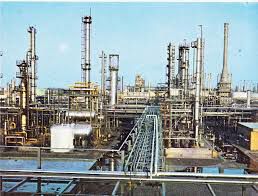THE FALL OF THE BRITISH LABOUR GOVERNMENT IN 1951, IN THE MIDST OF THE NATIONALISATION OF THE ANGLO-IRANIAN OIL COMPANY’S CRISIS.

(a) Refuse to allow its tankers to load oil at Abadan.
(b) Withdraw the services of all British technicians from Abadan and the oil fields.
(c) Endeavour by legal processes to ensure that any other company loading oil at Abadan was unable to dispose of it.1
In May 1951, the British tried ‘to convince Washington to cancel, delay or curtail financial aid to Iran’.2
In May 1951, Attlee warned the Iranian Government that ‘nationalisation would have serious consequences.’3
With tension rising around the oil installations at Abadan, and fears of harm to British property and personnel, as early as 10th May 1951, Herbert Morrison, the Foreign Secretary, considered the option of possible military intervention. The British position in the Middle East depends on her ability to maintain her position in the Iran, was the view of Morrison. On 15th May, Morrison announced that British paratroops were being held in readiness in the UK to protect the illegal seizure of British property. The Foreign Secretary had the Navy send a destroyer, HMS Mauritius, to lie off Abadan, but it had orders merely to stand by in case British lives became at risk. The threat to use force in defence of British property was not again mentioned by the Foreign Secretary and the paratroops got no dearer to Iran than Cyprus.
Although the British prepared themselves for military action against Iran, in May 1951, but settling the crisis by negotiation became the preferred option.
The United Kingdom is endeavouring to reach a negotiating position with the Persian Government with a view to ensuring both that our oil supplies are guaranteed and that AIOC is able to continue effective operations in Persia.4
The Anglo-Iranian Oil Company and the British Government in the meanwhile had accepted the fact of the nationalisation, but wanted to secure continued control of the oil operation and continued possession of the oil produced. The British Government took legal steps. At the end of May 1951, the British Government appealed to the International Court of Justice to adjudicate on the legality of Iran’s act of nationalisation.
- PRO, London, 1236/3656, Treasury Records, Cabinet, Persian Oil, Economic Sanction against Persia, Secret, 8th May, 1951, p. 1.
- M.A. HEISS, The United States, Great Britain, and Iranian Oil, 1950-1954, Ph.D. Thesis, the Ohio State University, 1991, p. 96.
- Ibid., p. 92.
- PRO, London, 1236/3656, Treasury Records, Cabinet, Persian Oil, Economic Sanction against Persia, Secret, 8th May, 1951, p. 1.



